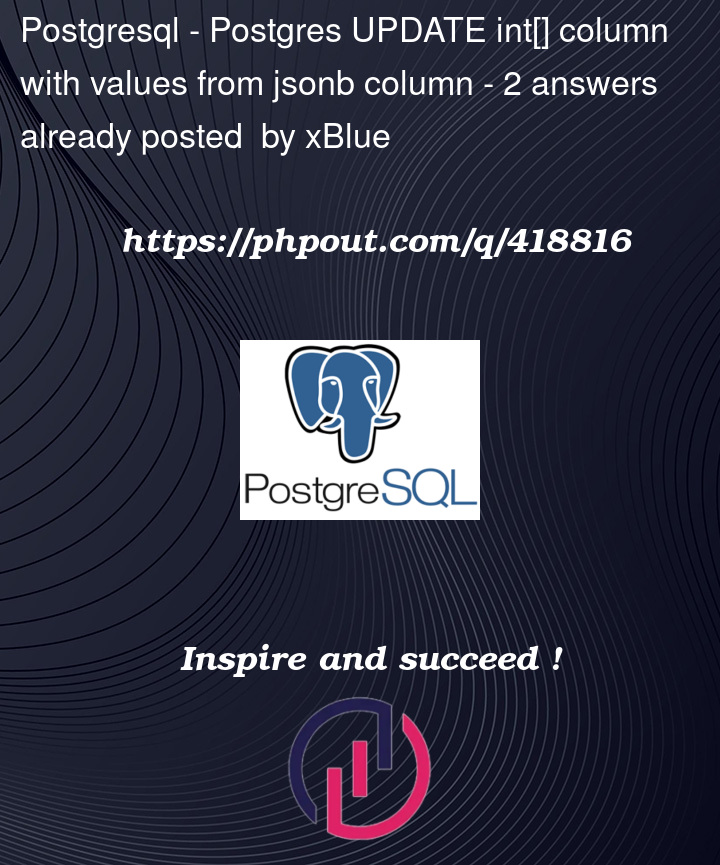I have a JSONB column with an array of integers and I’d like to migrate it to a native column of array of integers:
ALTER TABLE MyTable
ALTER COLUMN MyColumn TYPE int[] USING jsonb_array_elements(MyColumn)
However, this does not work:
set-returning functions are not allowed in transform expressions
MyColumn values look like this: [25,32].




2
Answers
I believe its because
jsonb_array_elementsreturns a set of rows instead of single value. As mentioned in the comments , I tried a similar approach to create a new column and then updating the new columnFiddle
Output
jsonb_array_elements()returns a set ofjsonb, not an array ofinteger. So twice incorrect.You might use
jsonb_array_elements_text()instead, cast tointegerand aggregate that to an array, but that requires a subquery andALTER TABLEdoes not allow that in the transform expression.Solution
Create a tiny auxiliary function for the task:
Then you can proceed with
ALTER TABLEas planned:fiddle
See:
If you don’t want to keep the function around, make it temporary:
See:
Note that
ALTER TABLEis fundamentally different fromUPDATE!The former locks the whole table while doing a rewrite, which is much simpler and typically substantially faster. But blocking concurrent access must be avoided in some databases, especially if the table is huge, so it would take a long time. Then, incrementally populating a new column may be the way to go (even if that’s a lot more complex and expensive overall).